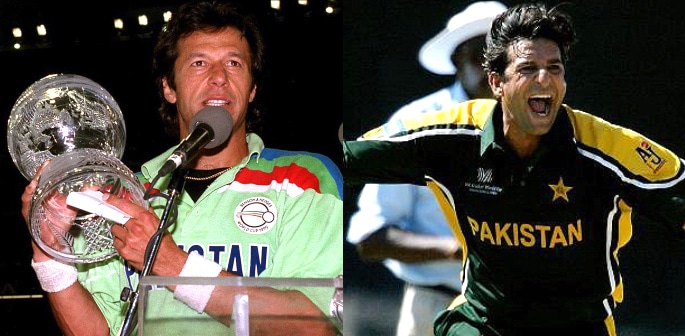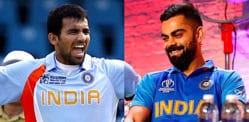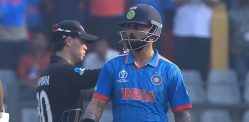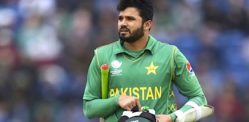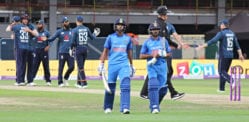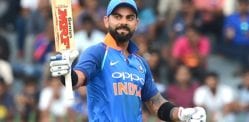"What a great delivery, left arm around the wicket."
If Pakistan had the chance to select an all-time One Day International (ODI) Cricket World Cup XI, they could be invincible.
Some great players in all cricketing departments have gone on to represent Pakistan in the quadrennial mega event.
Hence, Pakistan would be able to balance their team, with great pace, spin and batting.
Naturally, players in an all-time XI would come from the 1992 Cricket World Cup winning team, along with those who have performed exceptionally well in previous and subsequent tournaments.
Former Pakistan cricket legend Imran Khan is an automatic choice to lead such a team. His talented protege Wasim Akram would certainly be in the team.
Here is an all-time Pakistan Cricket World Cup ODI XI, which includes three players that have not won the world cup:
Saeed Anwar (1996-2003)
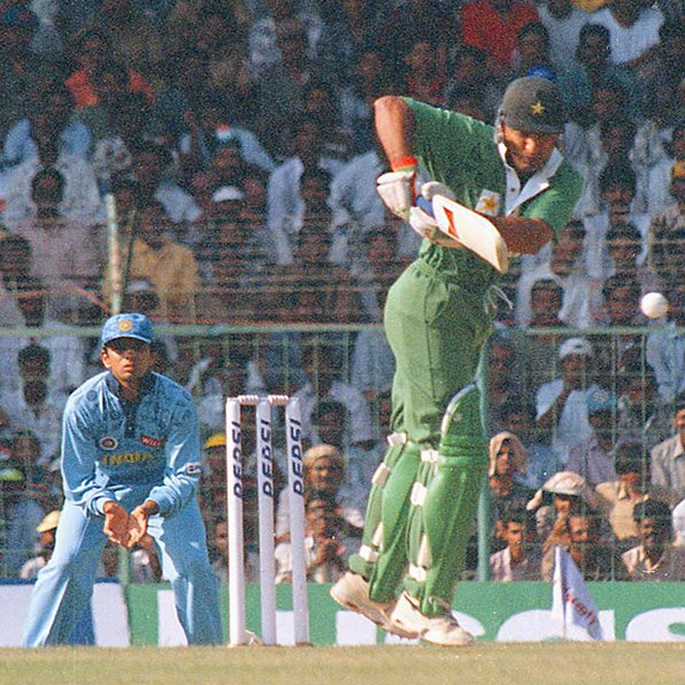
Slotting nicely at the top of the order, Saeed Anwar is the best ever Pakistan opener to have not won the fifty over cricket world cup.
At the peak of his form, Saeed had to miss the 1992 Cricket World Cup after suffering an injury.
After Javed Miandad, Saeed is the highest runs scorer for Pakistan in world cups.
Besides Rameez Raja and Aamer Sohail, he is the only other opening batsman for Pakistan to score over five hundred runs in world cups.
In twenty-one games across three world cups, Saeed made 915 runs. He had a healthy average of 53.82 and a strike rate close to 80.
Saeed smashed three centuries during the world cups. His unbeaten 113 against New Zealand in the 1999 Cricket World Cup semi-final is his highest score. Pakistan won that match comfortably by eight wickets.
Aamer Sohail (1992-1996)
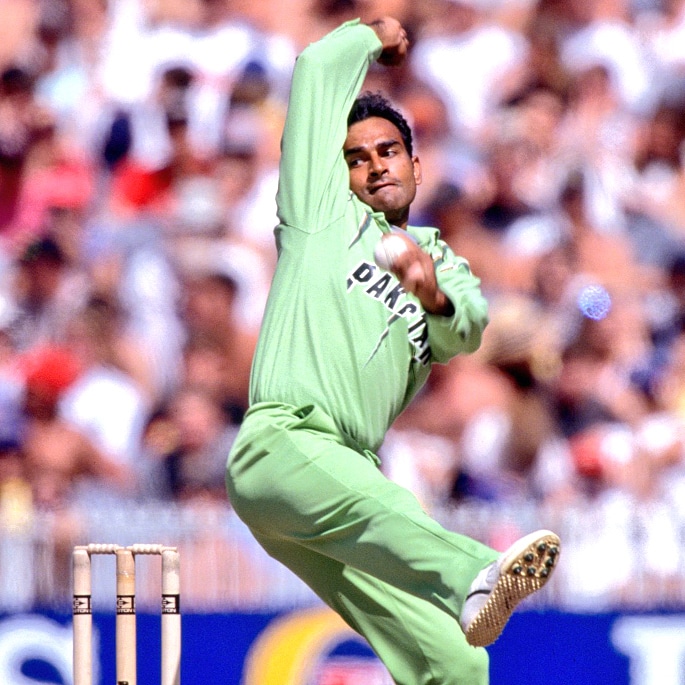
Cricket commentator and analyst Aamer Sohail is the right choice to accompany Saeed Anwar at the top.
During the 1992 Cricket World Cup-winning campaign, Aamer hit one hundred and two fifties. His highest score of 114 came versus Zimbabwe during their second group phase game.
As a stroke player, Aamer did well across two world cups, making 598 runs in sixteen games. Aamer’s excellent world cup average of 37.37 is higher in comparison to his overall ODI average, which was 31.86.
Former Pakistan openers Majid Khan and Rameez Raja averaged higher than him in the World Cups. But Aamer makes the final XI because his strike rate of 70.60 is better.
The other advantage of Aamer is his slow-left arm bowling. Aamer and Saeed Anwar had built a formidable opening partnership in the 90s.
Zaheer Abbas (1975-1983)
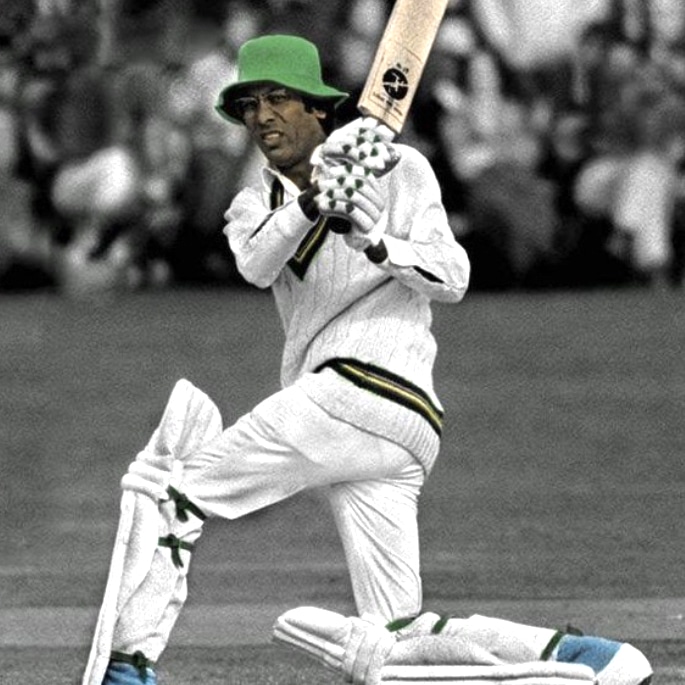
Zaheer Abbas, familiar as the ‘Asian Bradman’ gets the nod for the all-important one down position ahead of Mohammad Yousuf and Ijaz Ahmed.
Despite not winning a world cup, Zaheer made big contributions in the four-yearly event.
Spanning three world cups, Zaheer had almost 600 runs at an average of 49.75.
His strike rate of 78.34 is exceptional for an era, which saw him facing some great West Indian and Australian fast bowlers.
In a total of fourteen matches, he made one century and four half-centuries.
He made an unbeaten 103 against New Zealand, defeating the Kiwis in their last Group B game during the 1983 Cricket World Cup.
Javed Miandad (1975-1996)
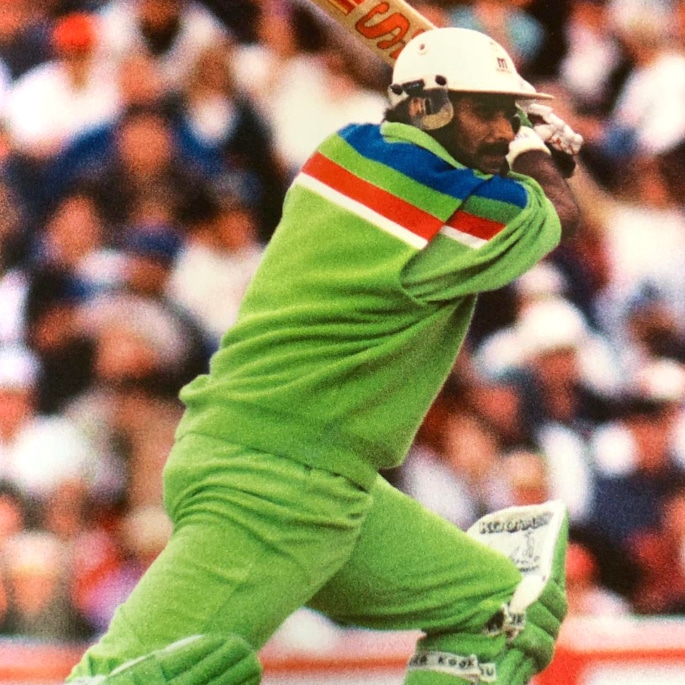
The dependable and cheeky Javed Miandad comes at number four. He is the man for the big moments. Arch-rivals India will never forget his six of the last ball at Sharjah Cricket Stadium in 1986.
Participating in six world cups, Javed is the only Pakistani player to score over 1000 runs. Over the course of thirty-three matches, he made 1592 runs at a world-class average of 43.32.
The strategy of Javed was always to accumulate singles in the middle overs and then be ready for the onslaught at the end.
He was a key advisor and supporter of Pakistan’s charming captain Imran Khan.
Fans remember Javed for scoring fifty-seventy not out against the in-form New Zealand in the 1992 Cricket World Cup semi-final.
In the 1992 Cricket World Cup final, he built an important 129 run partnerships with Imran to ensure Pakistan made a winning total.
He made his only world cup hundred (103) against Sri Lanka in Pakistan’s first Group B encounter during the 1987 Cricket World Cup.
Inzamam-ul-Haq (1992-2007)

Inzamam-ul-Haq was the man who broke the dreams of New Zealand in the semi-final of the 1992 Cricket World Cup.
Chasing 263, Pakistan were in a spot of bother at 140-4. But the calm Inzamam was on a mission, smashing 60 off thirty-seven balls. Despite being run out, Pakistan won the match with one over to spare.
In the 1992 Cricket World Cup final, he came onto the crease, scoring a forty-two runs cameo. At his best, Inzamam was a laid bad cricketer. But he always had time to play the big shots.
Along with the great Sir Viv Richards from the West Indies, Inzamam was a talent of the highest pedigree. He was able to play spinners and fast bowlers with utmost ease.
With 717 runs in thirty-three matches, Inzamam is the third highest scoring batsman for Pakistan at world cups.
Inzamam is a good pick to bat at the key position of number five.
Imran Khan (1975-1992)
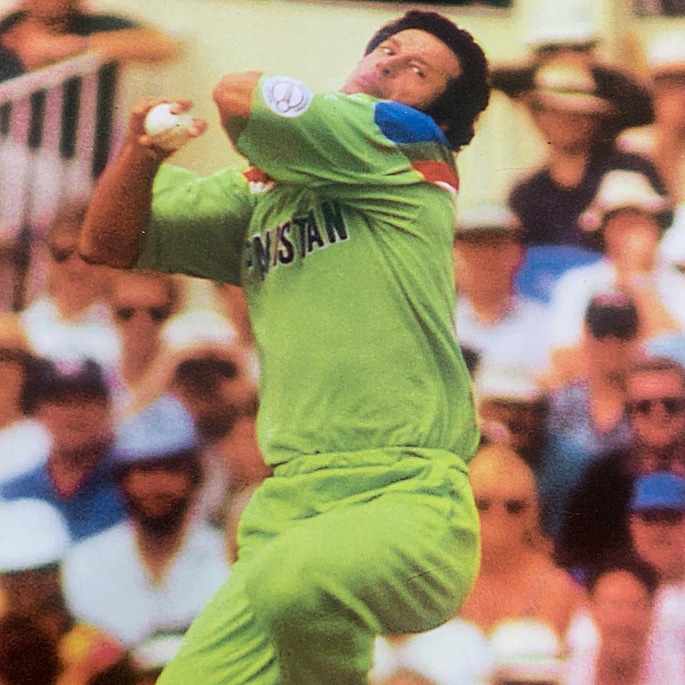
The charismatic Imran Khan is the ideal person to lead an all-time Pakistan ODI XI Cricket World Cup side.
On the brink of making an exit from the 1992 Cricket World Cup, Imran led from the front as his ‘Cornered Tigers’ became champions.
It is quite ironic that Imran took the final wicket of Richard Illingworth to claim victory and lift the 19922 World Cup trophy.
With a bowling and batting average of 19.26 and 35.05 respectively, Imran is the greatest all-rounder to feature in the World Cup.
Playing five world cups, in twenty-eight matches, he made 666 runs and got thirty-four wickets.
In their fourth Group A encounter against Sri Lanka at the 1983 Cricket World Cup, he made his only World Cup hundred (102), blowing away the Islanders by eleven runs.
His best bowling figures of 4-37 came against England in the 13th match of the 1987 Cricket World Cup.
Wasim Akram (1987-2003)
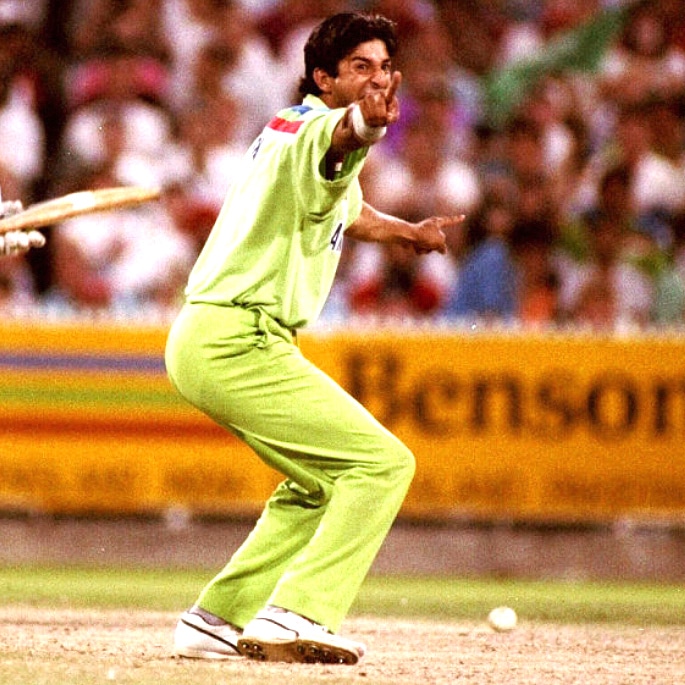
The ‘Sultan of Swing’ Wasim Akram is the greatest natural talent to represent Pakistan in the world cups. At number seven, he is the second genuine all-rounder in the team.
Besides the charisma of skipper Imran Khan, Wasim was a genius at the 1992 Cricket World Cup.
Taking eighteen wickets in ten matches, Wasim was the highest wicket taker of the tournament. With a strike rate of 18.77 and conceding 3.76 runs per over, Wasim was simply phenomenal.
Most importantly, his fans always remember him for his all-around match-winning performance with the bat and ball in the final against England.
He smashed 33 off eighteen balls to give Pakistan the advantage. During the England innings, he got rid of Ian Botham for a golden duck.
Then he delivered the two most unplayable deliveries in World Cup history to remove Allan Lamb and Chris Lewis on consecutive balls.
Commentating for Channel Nine, the late Richie Benaud said of the two magical deliveries:
“What a great delivery, left arm around the wicket. Allan Lamb has been cleaned up. Perhaps so too England. Beautifully bowled by Wasim.
“It is an unusual action and direction to come left arm around at that pace. Allan Lamb has gone.”
Benaud added:
“He traps Lewis from that list. Wasim Akram is on a hat-trick. Played on. Again left-arm around the wicket.”
Competing in five world cups, Wasim claimed fifty-five wickets. His best figures of 5-28 came up against Namibia in the 2003 Cricket World Cup.
Moin Khan (1992-1999)
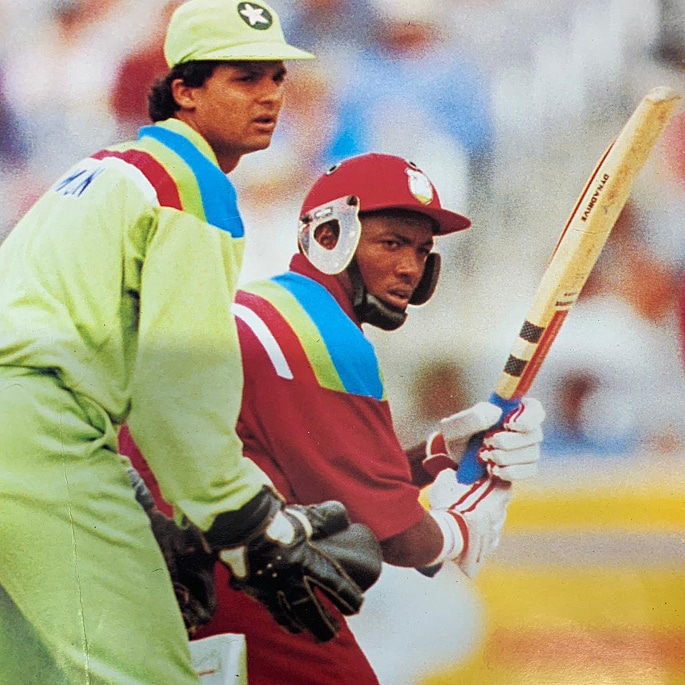
The fighting spirit of Moin Khan merits his place as the wicket-keeping batsman in the team. Similar to Javed Miandad, he was very quick between the wickets when taking singles.
He was also vocal behind the stumps, often encouraging his spinners Mushtaq Ahmed and Saqlain Mushtaq by saying Shahbash (well done) to them.
Playing fourteen innings over two world cups, Moin averages 28.60, with a strike rate of 106.31.
In the 1992 Cricket World Cup semi-final against New Zealand, Moin sliced a six over long-off and then hit a boundary to take Pakistan over the line.
His highest score of sixty-three against South Africa in the 1999 Cricket World Cup is the only half-century to his name.
In the 16th match of the same world cup against Australia, Moin took a fantastic one-handed catch to dismiss Mark Waugh (41) off fast medium pacer Abdul Razzaq.
Saqlain Mushtaq (1996-2003)

Saqlain Mushtaq will come in at number eight. As the early inventor of the doosra, Saqlain was a super-spinner of his time.
He was able to spin the ball into the batsman and also take it away from them. Fondly familiar as Saqi, he made his debut in the 1996 Cricket World Cup.
In fourteen world cup matches, Saqlain took twenty-three wickets, averaging 21.47 with the ball.
On June 11, 1999, he got a hat-trick in the super six stage game of the world cup game against Zimbabwe, dismissing Henry Olonga (5), Adam Huckle (0) and Pommie Mbangwa (0) off three consecutive balls.
He became the second bowler to take a hat-trick in a world cup match.
Saqlain was also a useful batsman down the order, averaging 14.00 in ten innings.
Shoaib Akhtar (1999-2011)
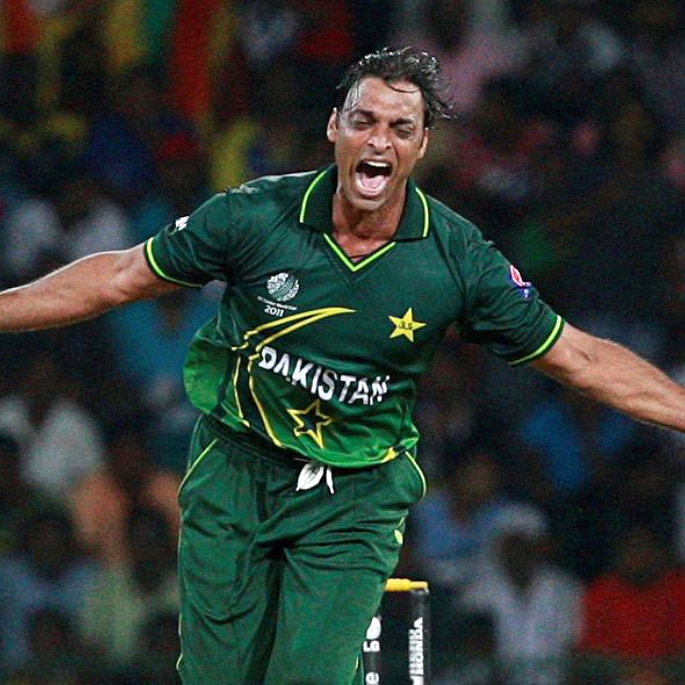
Shoaib Akhtar is an X-factor player with his sheer pace and celebrations.
A young Shoaib was a revelation during the 1999 Cricket World Cup, as he made his mark on cricket’s biggest stage.
With a speed of 161. 3 km/h, the Rawalpindi Express delivered the fastest ball in cricket history against England at the 2003 Cricket World Cup in South Africa.
Featuring in three world cups, Shoaib took thirty wickets in nineteen matches, with a strike rate of 29.7.
He is the third highest Pakistan wicket-taker in world cups behind Wasim Akram and Imran Khan.
At his best, Shoaib could frighten any batsmen and be a handful in most conditions. Like most tail-enders, Shoaib comes in at number nine as he has the ability to swing the bat.
Mushtaq Ahmed (1992-1996)
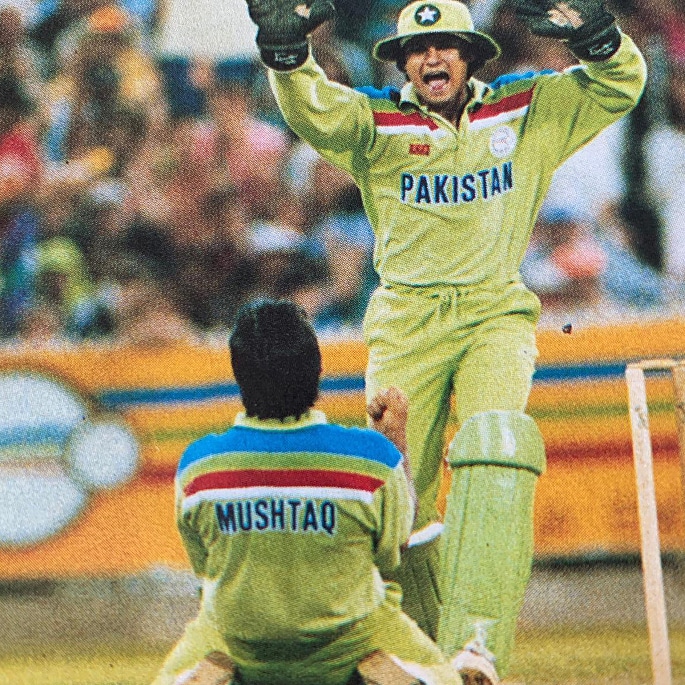
Mushtaq Ahmed was another sensational player from the 1992 Cricket World Cup winning team. Known to many as Mushy, his leg-spin bowling gave captain Imran Khan so many options in that tournament.
Leg-spin is a cricket art form, which can be very attacking for the batsmen.
Mushtaq who had everything up his sleeve was the joint highest wicket-taker of the 1992 Cricket World cup.
He bagged sixteen wickets in nine matches at a bowling average of 19.43.
In the victorious final against England, he took 3-41 including a beautiful googly to have Graeme Hick adjudged plumb lbw for seventeen.
His celebrations were jubilant as Pakistan won the final by twenty-two runs at the Melbourne Cricket Stadium on March 25, 1992.
Mushtaq played two world cups, claiming twenty-six wickets in fifteen matches.
Watch 1992 Cricket World Cup highlights here:

There are many fantastic players who miss out on this list. The likes of Waqar Younis, Majid Khan, Rameez Raja, Abdul Razzaq and Saeed Ajmal would make it into an all-time Pakistan ODI Cricket World Cup squad.
With Pakistan’s future bright, there are many more players who can stake a claim to be part of the Green Shaheens all-time ODI World Cup XI.




















































